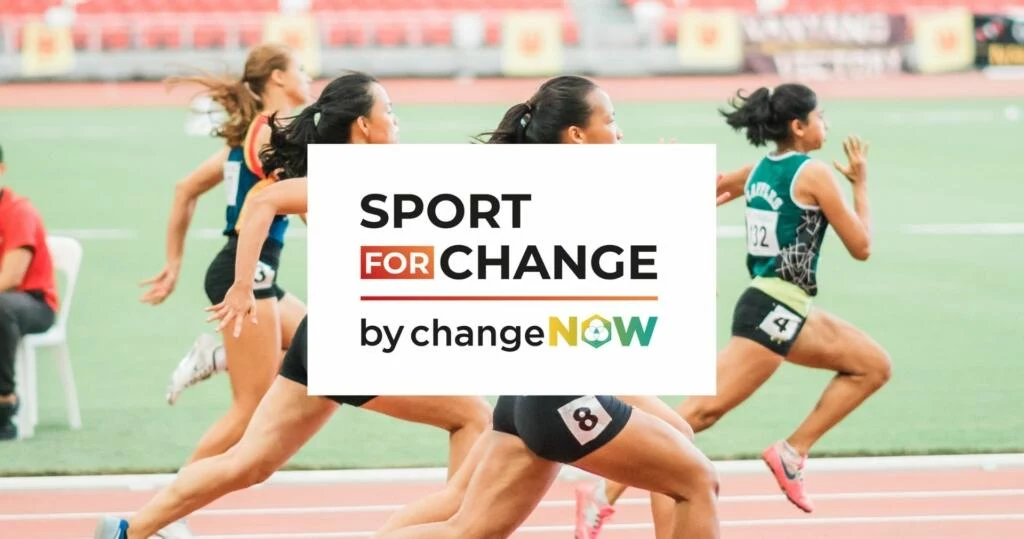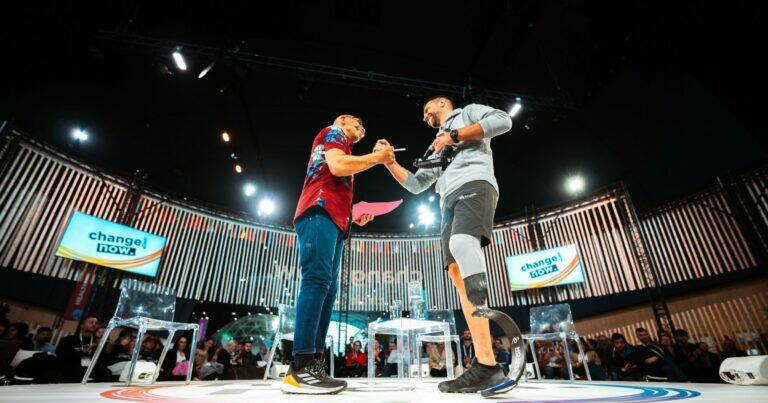Athletes for Change
At every sporting event, they are thrust into the spotlight. Beyond their sporting performances, all their actions are admired, scrutinized, and analyzed by the public : athletes have become role models. More and more of these sports warriors are using this notoriety to defend causes that are close to their hearts: the fight against climate change, the protection of biodiversity, or the preservation of resources...
One question stands out between the demands of their sporting careers and their sincere convictions: how can they balance their ecological commitment with their life as a top athlete?
Becoming aware of one's impact is the beginning of activism.
There are likely as many reasons for athletes to become involved as there are sports disciplines. For athletes who practice outdoor sports, immersion in nature often leads to an understanding of the environment.
This was the case for Alice Modolo, a freediver: “I practice a sport that takes place in a natural environment, and I’ve learned to feel the vulnerability and power of the environment, of nature.”
For others, realizing their impact serves as a wake-up call, like Olympic kayaker Sarah Guyot: “I had the chance to calculate my carbon footprint as a top-level athlete thanks to Carbone 4 and the French magazine “Nouvel Obs.”
The result was catastrophic; I produced 21 tons of CO2 annually due to overseas travel.” That’s nearly ten times the carbon footprint target for each French citizen set by the Paris Agreement.
“But if we’re part of the problem, we’re also part of the solution,” admits Sarah Hanffou, an Olympic table tennis player. “We are all concerned: athletes, spectators, providers, sponsors… Everyone must put in their energy.”
And why not become true committed ambassadors or interact directly with their audience during sporting events? Emmanuel Schaller, a former professional volleyball player, understands this well: “athletes are influential, they are media-covered, they can convey messages during competitions, but also outside of them.”
This figure of example and authority allows them to “play an educational role in respect for nature, in front of their community, by conveying messages to reduce waste, be more eco-responsible, and have a positive impact on the environment every day,” confirms David Larose, a former Olympic judo athlete. Professional sailor Thimoté Polet is convinced that things can evolve on an individual level: “individual actions lead to collective actions and influence public debate… I think it’s moving in the right direction. Maybe not fast enough, but it’s moving!”
Between convictions and realities: the challenge of contradictions
Many adopt more responsible behaviors in the practice of their sport as well as in their daily lives. Arnaud Assoumani, a Paralympic athlete in athletics, has changed some habits: “I have adopted walking and biking for daily travel, I choose stage locations that I can reach without flying, I have greatly reduced meat consumption, I rarely buy anything new…” Sarah Hanffou “tries to buy locally and use the car less.”
But only some things depend on their own will, as the reality of a top-level career can impose less virtuous behaviors, despite their intentions. “If a competition is on the other side of the world, we don’t have a choice but to go there, and therefore to take a plane, sometimes for just a few days, and several times a year. We have no control over the choice of competition locations, and I can’t video conference…” explains Arnaud Assoumani.
So, should they boycott? For him, it’s more complicated than that: “If I boycott, I don’t win a medal; if I don’t win a medal, I don’t make a living or what allows me to convey positive messages to those who follow us.”
Acting to transform sport from within
Many initiatives are being created. To go further, some have decided to change the sport from within. This is the case of Lenaïg Corson, a rugby player who encourages her club, Stade Français, to change its habits “not to use plastic bottles, to prefer a reusable water bottle at every training, to try to avoid industrially packaged foods in plastic at snack time or to come to training on foot or by bike.
Sarah Hanffou engages her entire ecosystem and, in particular, her sponsors, an essential link in the economy of sport: “As an athlete, I have chosen a sponsor very committed to these issues. Together, we have created points for collecting used equipment and implemented this system in 350 clubs in France. Four thousand pieces of equipment have already been collected.”
She has also created the brand Tako, developed thanks to the incubator of Paris 2024 and the French Development Agency (AFD), which manufactures 100% made in Ghana ping pong tables. Laetitia Bambara, a former professional hammer throw athlete, “wants to give a second life to pairs of shoes collected in France and then given to athletes in Burkina Faso.”
For Arnaud Assoumani, his role as a Paris 2024 ambassador is not limited to representation at events: “I want to be able to express my opinion, represent the voice of athletes, and ensure that the hosting of the Olympic Games in France is useful for inclusion, education, and ecological transformation.”
And for others, the desire to act goes beyond the world of sport. Emmanuel Schaller, a former professional volleyball player and mountain lover has also chosen a profession that has meaning for him: by renovating an old mountain farm, he has set up his roasting workshop, Montagnes Cafés, which offers local and responsible coffees, traceable from the tree to the cup!
As they prepare to host the next Summer Olympics and Paralympics, athletes have high expectations for Paris 2024.
Emmanuel Schaller hopes that “the Paris Games will be a school for these issues, to exchange and share with future organizing committees, especially Los Angeles, so that they can take over.” David Larose also wants Paris 2024’s commitments to be reproduced at other events and scales and to help “maintain these good practices in daily life so that they last.”
For Paris 2024, which has committed to delivering a new model of games, it is a daily challenge, as Amadea Kostrzewa, Manager of Environmental and Climate Mobilization, explains: “We are guided by a goal: to halve the carbon footprint of the games. That’s why our games rely on 95% existing or temporary infrastructure, and we are working to reduce the impact of each activity, such as food, energy, transport, and construction… We want these games to serve as a laboratory and drive new practices in the organization of events, and above all, we want our athletes to be proud to participate!”
These statements were collected at the ChangeNOW Summit 2022 as part of the Athletes for Change initiative created by Paris 2024 and the Etoiles du Sport. Meet new committed athletes at the 5th edition of the ChangeNOW Summit in May 2023.





